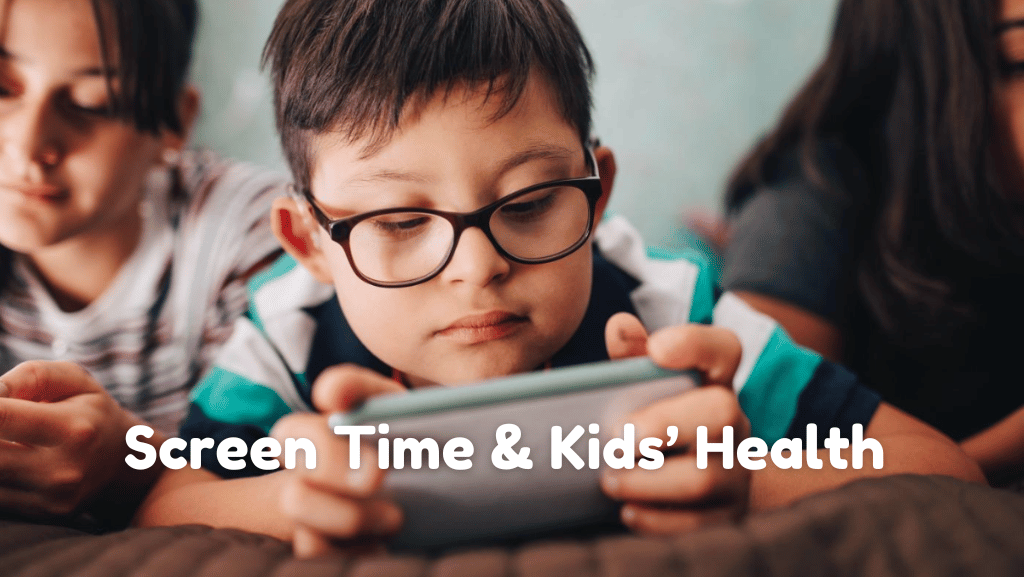Screens are a constant presence in most households, from educational apps to streaming shows and social media. While technology brings clear benefits, extended screen time is having measurable effects on children’s physical and emotional well-being. Parents are noticing the shift, and healthcare professionals are raising concern as more data becomes available.
Impact on Physical Health and Movement
Children today spend more time seated than ever before. Excessive screen time often displaces physical activity, which plays a critical role in healthy development. Prolonged sitting can weaken posture, contribute to weight gain, and reduce cardiovascular fitness. In some cases, this inactivity may delay motor skill development, particularly in younger kids who benefit from running, climbing, and hands-on exploration.
Eyesight is another growing concern. Increased exposure to screens, especially without proper breaks, can lead to digital eye strain. Symptoms include dry eyes, blurred vision, and headaches. Many children also use screens too close to their faces or in poorly lit environments, which can make matters worse.
Mental and Emotional Effects of Too Much Screen Time
The mental health consequences of excessive screen time are becoming harder to ignore. Overstimulation, disrupted sleep patterns, and reduced face-to-face interaction are linked to increased anxiety, irritability, and difficulty with emotional regulation. Sleep is particularly affected when screen use occurs close to bedtime, since the blue light emitted by devices interferes with the body’s natural sleep cycle.
There is also concern that frequent exposure to fast-paced content can shorten attention spans. Children may find it harder to focus in slower-paced settings like classrooms or family conversations. This shift can affect learning, relationships, and overall confidence in offline environments.
Encouraging Healthy Habits Early
Helping children maintain a balanced relationship with screens starts with setting limits and encouraging alternatives. Outdoor play, creative hobbies, and movement-based activities offer a meaningful counterbalance. Programs like a youth fitness camp can give kids a fun, structured way to stay active while building social skills and confidence without digital distraction.
Families do not have to cut out screens entirely, but staying mindful of daily usage and its effects is essential. By creating routines that include physical movement and screen-free time, parents can help their children develop healthier habits that support their growth and long-term well-being.
(photo credit: Microsoft Stock Images)




